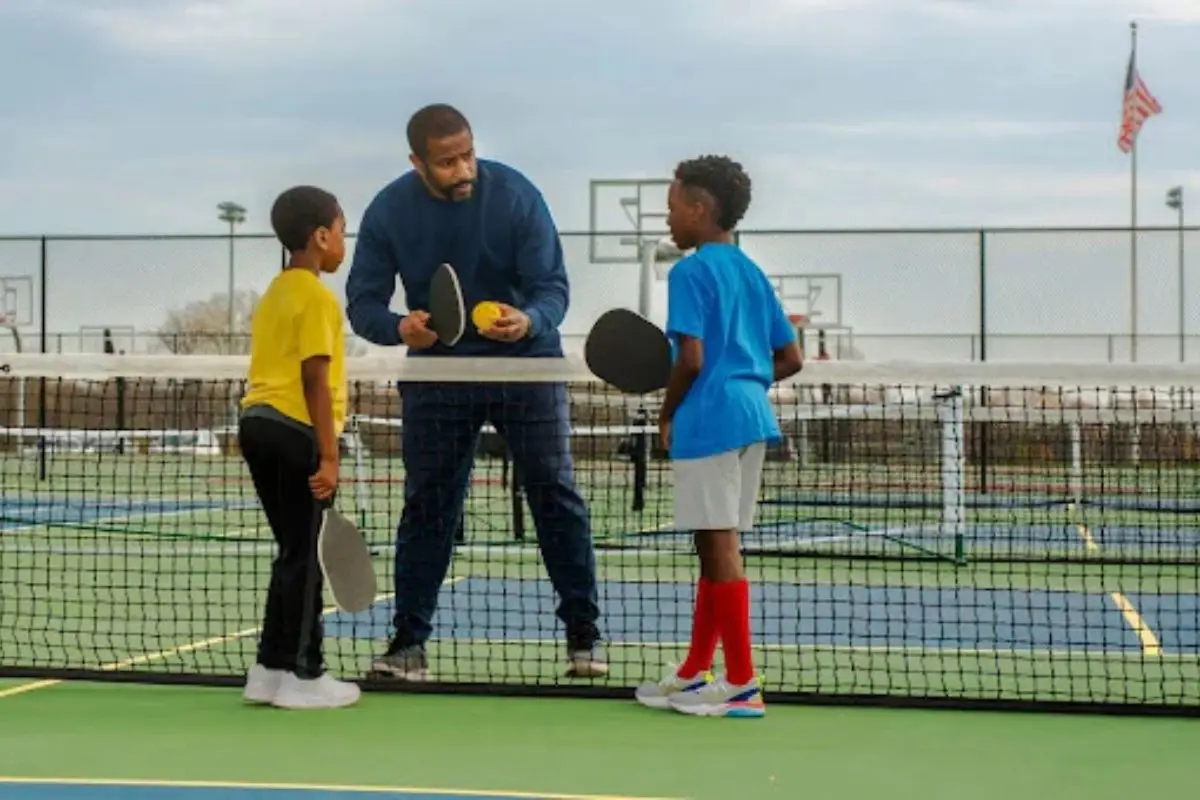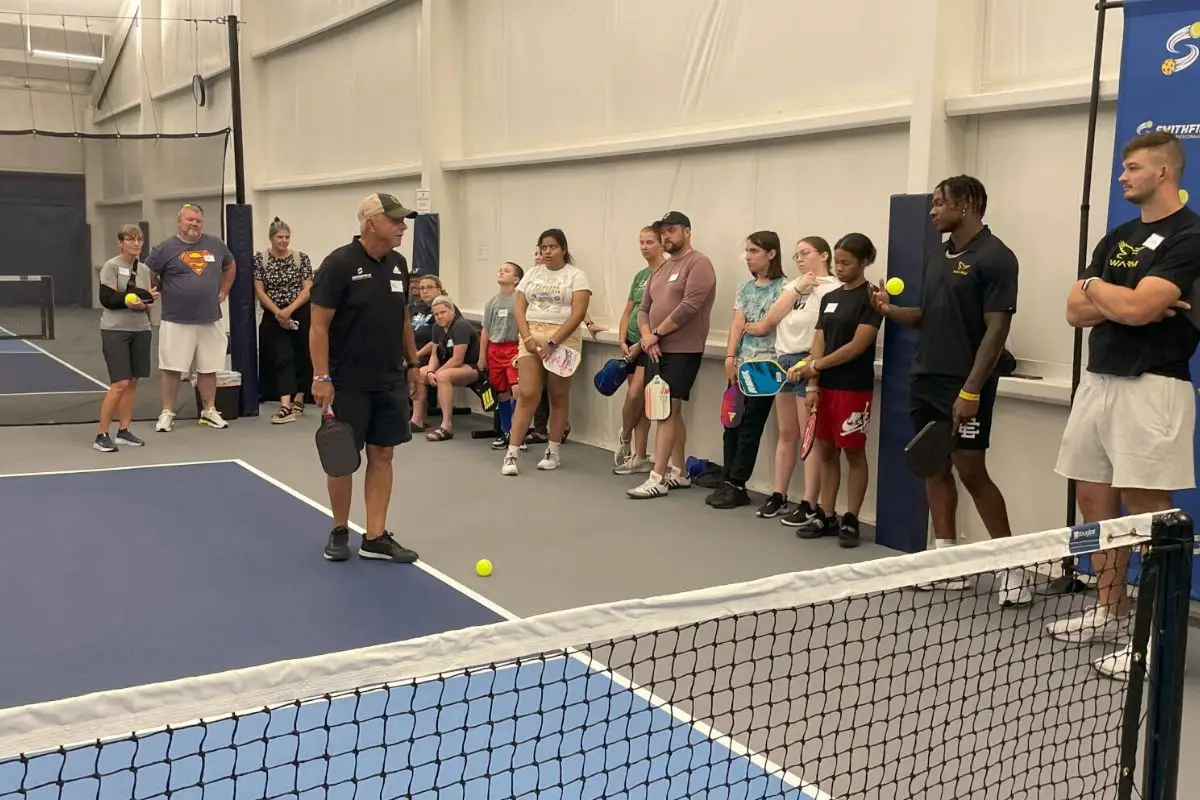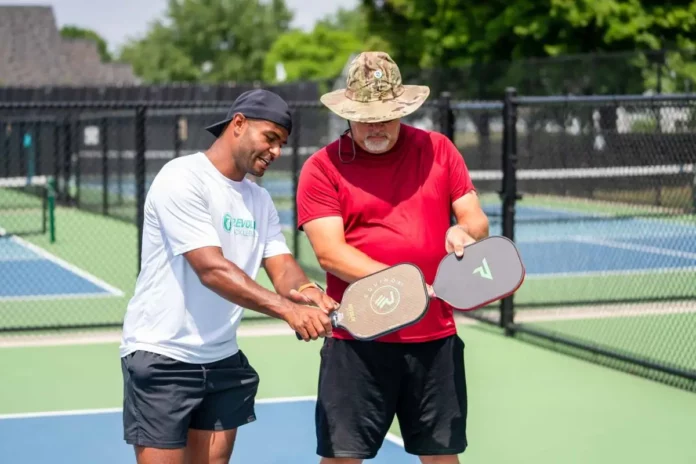Key Signs of a Great Pickleball Coach: When players set out to enhance their pickleball skills, the importance of choosing the right coach cannot be overstated. A skilled coach offers guidance through the intricacies of strategy and skill development, while a less effective coach can leave players feeling frustrated and stagnant in their progress. Understanding the essential traits that define a great coach can significantly influence a player’s growth on the court.
Green Flags: Identifying a Great Pickleball Coach
1. Knowledge of the Game
A great pickleball coach embodies a deep understanding of the game. They are true students of pickleball, well-versed in everything from the mechanics of basic shots to advanced tactics. This expertise allows them to answer players’ questions and explain not only how to execute a shot but also the rationale behind its effectiveness.
How to Use This: Players should feel encouraged to ask questions during lessons, as a knowledgeable coach will adapt their explanations to suit individual learning styles.
2. Adaptability
Recognizing that different players learn in diverse ways is crucial for any coach. A competent coach should be prepared with various teaching methods to help players grasp challenging concepts. Whether it involves breaking down a technique further, employing metaphors, or utilizing video analysis, adaptability is vital for addressing each player’s unique needs.
How to Use This: Players should pay attention to a coach’s willingness to adjust their approach when explaining difficult concepts.
3. Focus on Mechanics and Strategy
An effective coach balances the importance of both shot mechanics and game strategy. They should teach players how to make clean shots while also preparing them for real-game situations. Some coaches may excel in one area but falter in another, so players must be clear about their specific needs.
How to Use This: Beginners should prioritize mechanics, but as players advance, it becomes crucial to have a coach who can enhance their strategic thinking.

Red Flags: Warning Signs in a Coach
1. Excessive Talking, Limited Practice
One of the most significant red flags is a coach who spends more time talking than teaching. If a coach dedicates more time to explaining concepts rather than facilitating on-court practice, it may be time to consider a change. Improvement in pickleball arises from active engagement and repetition, not endless lectures.
How to Avoid This: Players should seek coaches who emphasize active learning and practical drills.
2. Selling Too Hard
Be wary of coaches who prioritize selling additional lessons over genuine student development. The essence of coaching lies in fostering improvement, not in pushing constant sales. If a coach continually pressures players to sign up for packages without demonstrating authentic growth, this is a major red flag.
How to Avoid This: Players should focus on results, ensuring their coach prioritizes improvement over financial gain.
3. Stagnation—Not Knowing When to Move On
Even the best coach may not be suitable indefinitely. Players might outgrow their coaches, and if progress stalls and the coach seems unable to provide further guidance, it may be time to seek someone new who can elevate their game.
How to Handle This: It’s acceptable to outgrow a coach; regular evaluations every few months can help players assess their ongoing progress.
How to Choose the Right Pickleball Coach
1. Define Goals
Before selecting a coach, players should clarify their objectives. Are they seeking to refine basic mechanics, or do they require strategic insights to elevate their tournament performance? Understanding personal goals will assist in finding a coach who meets those specific needs.
2. Ask About Background
Inquire about the coach’s pickleball background and their experience with other racquet sports. While experience in tennis or racquetball can be beneficial, it is essential that the coach understands the specific nuances of pickleball—such as the unique importance of wrist movement, which differs significantly from tennis.
3. Observe Teaching Style
If possible, players should observe a lesson in action. Does the coach engage with their students? Are they attentive to individual needs? These observations can help players gauge whether a coach’s style aligns with their learning preferences.
4. Certifications Matter, but Aren’t Everything
While certifications such as those from the Professional Pickleball Registry (PPR) or the International Pickleball Teaching Professional Association (IPTPA) demonstrate a coach’s commitment to education, a truly exceptional coach also possesses strong communication skills and a genuine passion for teaching.
5. Compatibility
The coach-player relationship is deeply influenced by personality compatibility. Players are likely to enjoy lessons more when they connect well with their coach. Some coaches adopt a strict, drill-sergeant demeanor, while others maintain a more relaxed, encouraging approach. Players should consider what motivates them and seek a coach who fits that profile.

Where to Find a Pickleball Coach
1. Local Pickleball Clubs
Checking with local clubs or community centers is a great starting point—many employ certified instructors or have connections with freelance coaches. Club members can often provide recommendations based on personal experiences.
2. Online Directories
Websites like pickleballteachers.com and Pickleball Coaching International offer listings of certified coaches across various locations. These resources are helpful for players seeking nearby options.
3. Word of Mouth
Players should reach out to others at their skill level or slightly above for recommendations. Fellow players who have taken lessons can point to coaches who might meet their needs, along with insights into the coaches’ reputations and teaching styles.
4. Attend Clinics and Workshops
Many professional players and coaches host workshops and clinics, providing an excellent opportunity to experience different coaching styles. If players find a coach whose style resonates with them, they can inquire about one-on-one coaching.
Selecting the ideal pickleball coach involves more than simply identifying someone skilled; it requires finding a coach whose teaching style aligns with individual learning preferences, whose focus meets players’ goals, and with whom they genuinely enjoy working. By recognizing the green flags, avoiding the red ones, and being willing to change coaches if necessary, players can ensure a more fulfilling and effective training experience. A great coach not only helps players improve but also makes the journey enjoyable.
News in Brief: Key Signs of a Great Pickleball Coach
Choosing the right pickleball coach is essential for skill improvement. Key indicators of a good coach include deep knowledge of the game, adaptability in teaching methods, and a focus on both mechanics and strategy. Red flags to watch for are excessive talking, pressure to purchase more lessons, and stagnation in skill development. Players should clearly define their goals, assess coaches’ backgrounds, and consider compatibility. Local clubs, online directories, and workshops are excellent resources for finding suitable coaches.
ALSO READ : Route to Pickleball Coaching Certification: Key Insights

